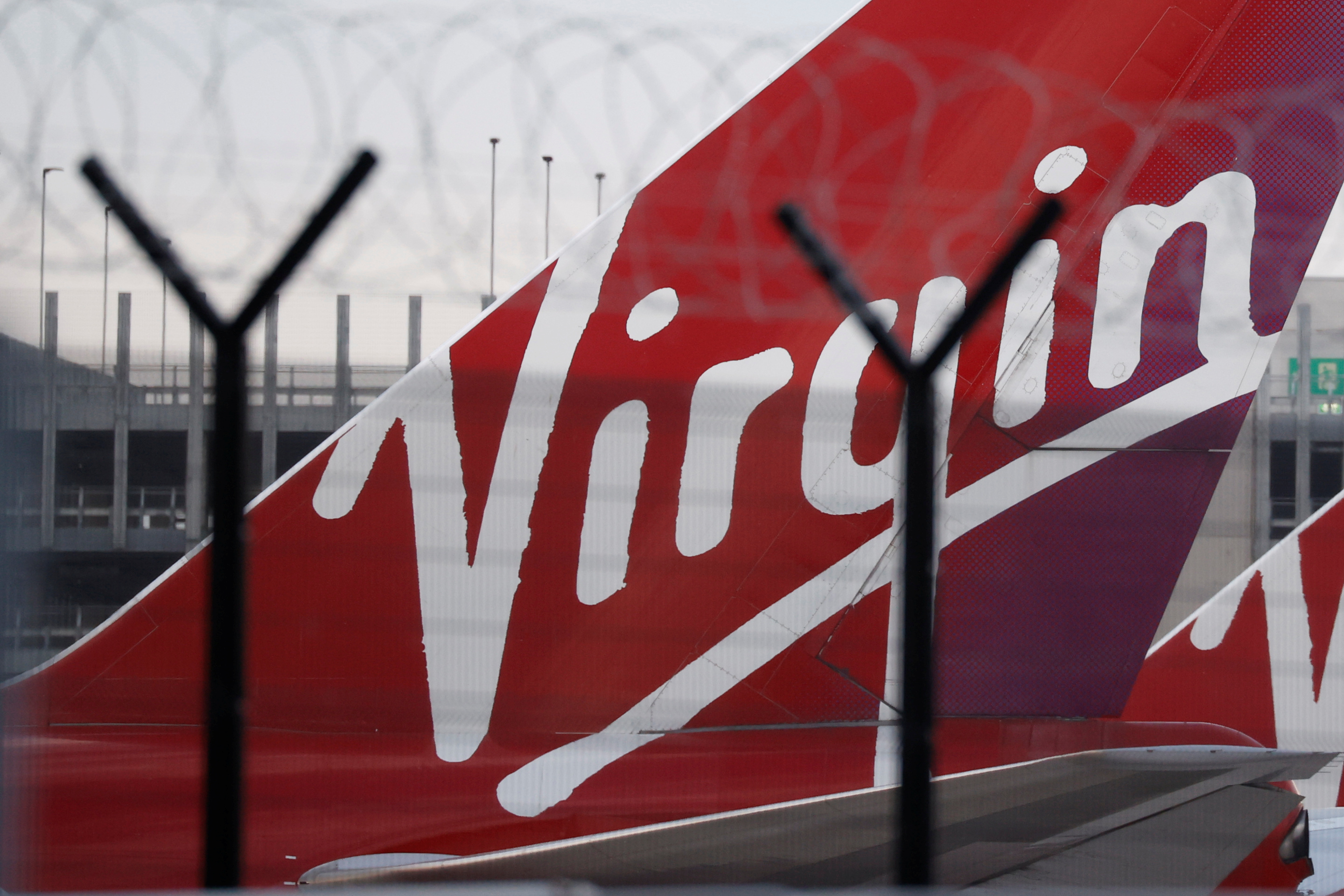[ad_1]

Virgin Atlantic’s planes are seen parked at Manchester Airport, Manchester, Britain, May 9, 2020. REUTERS/Phil Noble/ File Photo Acquire Licensing Rights
LONDON, Nov 28 (Reuters) – A Virgin Atlantic passenger jet flying from London to New York powered by 100% sustainable aviation fuel (SAF) will take off on Tuesday, as the aviation world seeks to showcase the potential of low carbon options to secure its future.
As the world de-carbonises, airlines are banking on fuel made from waste to reduce their emissions by up to 70%, enabling them to keep operating before electric and hydrogen-powered air travel becomes a reality in the decades to come.
The flight operated by a Virgin Boeing 787 powered by Rolls-Royce (RR.L) Trent 1000 engines, will be the first time a commercial airline has flown long haul on 100% SAF.
It follows the successful transatlantic crossing by a Gulfstream G600 business jet using the same fuel last week.
Virgin Atlantic’s billionaire founder Richard Branson, the airline’s chief executive Shai Weiss, and Britain’s transport minister Mark Harper will all be on board the flight scheduled to leave London Heathrow at 1130 GMT and arrive at New York’s John F. Kennedy International Airport at 1440 EST.
There will be no paying passengers on board or cargo on what Virgin has dubbed Flight100, which comes days before the start of COP28 climate talks in Dubai on Thursday.
SAF is already used in jet engines as part of a blend with traditional kerosene, but after successful ground tests, Virgin and its partners Rolls-Royce, Boeing (BA.N), BP (BP.L) and others won permission to fly using only SAF.
Aviation accounts for an estimated 2-3% of global carbon emissions. SAF is key toward reducing those emissions, but it is costly and accounts for less than 0.1% of total global jet fuel in use today.
The fuel used to power Tuesday’s flight is mostly made from used cooking oil and waste animal fat mixed with a small amount of synthetic aromatic kerosene made from waste corn, Virgin Atlantic said.
Many European airlines – including Virgin, IAG (ICAG.L)-owned British Airways, and Air France (AIRF.PA) – have said they want to be using 10% SAF by 2030, and the industry’s goal of “net zero” emissions by 2050 relies on that share rising to 65%.
Yet the 2030 target looks challenging given SAF’s small volumes and its high cost, right now about three to five times as much as regular jet fuel.
In October, the head of IAG (ICAG.L) warned that there was more than a 90% risk the industry would not meet the European Union mandate for SAF availability in 2025.
Environmental advocacy group Stay Grounded called the flight “a greenwashing distraction.”
“(Fuel substitutes) are nowhere close to being scalable in the necessary timeframe to avoid climate collapse. What is urgently needed is to reduce the burning of fossil jet fuels, which means reducing flights wherever possible,” said Magdalena Heuwieser, who represents the network.
The aviation industry hopes that the Virgin Atlantic flight will highlight to governments the need for them to provide financial support to make SAF more readily available.
Virgin said the engines on the flight would be drained of SAF and tested before it returns to service using regular fuel.
Reporting by Sarah Young and Joanna Plucinska
Editing by Tomasz Janowski
Our Standards: The Thomson Reuters Trust Principles.
[ad_2]
Source link
